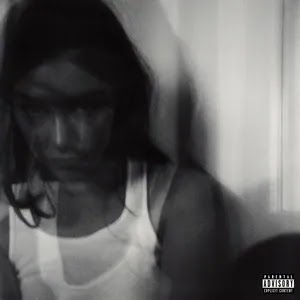The artist’s full-length debut is an honest step forward, but emotional vulnerability can’t save it from the clichés of confessional songwriting.
Gracie Abrams is a two-fold industry baby: Her father is Star Wars director and Lost co-creator J.J. Abrams, and her mothers are Taylor Swift and Phoebe Bridgers. The artist’s 2020 debut EP minor is a collection of diaristic tracks with ashen vocals, recalling her predecessors’ heartfelt divulgence. Although it inspired Olivia Rodrigo’s breakout song and has amassed nearly 300 million streams on Spotify, the EP is underdeveloped, with simple production and promising (but sometimes cliché) confessional writing. Her debut full-length Good Riddance dives deeper into personal accountability and sincere reflection on the fallout of complex relationships, revealing more of Abrams than ever before. But with melodic repetition and unadventurous production, the record is often stagnant, leaving you wishing for a more sophisticated, compelling take on whisperpop.
Abrams’ creative relationship with producer and co-writer Aaron Dessner is central to Good Riddance. While the two collaborated on a few songs for her 2021 EP This Is What It Feels Like, Abrams described their dynamic on this record as “a very tiny bubble, which felt like such a safe space to work through what I needed to process in these songs.” This comfort is palpable across the record: There are moments that display an admirable capacity for self-interrogation (“Used to lie to your face 20 times in a day/It was my little strange addiction” on “Best”), even if others feel like a middle school lesson on writing a metaphor (“I’m your ghost right now/Your house is haunted”; “I’m a rollercoaster/You’re a dead-end street” on “I know it won’t work” and “Full machine,” respectively).
The duo’s work remains mostly inside the box here. Taylor Swift’s recent collaborations with Dessner put her songwriting skills on full display, while adding newfound subtlety to her work, like the understated 5/4 discomfort of “tolerate it” and the unexpected stomp beat of “closure.” Knowing what he’s capable of inspiring, his input feels muted on Good Riddance. What he does offer is delicate acoustic guitars, pastel percussion, and the occasional unique embellishment. Abrams’ vocals are soothing and hazy, but their whispered quality risks being static. Repetitive, few-note melodies make this problem especially apparent; on tracks like “The blue” and “Best,” Abrams’ vocal performance sometimes lacks the energy needed to keep the songs engaging. You want her to wander somewhere unpredictable—to do something that would make these ostensibly intimate moments more special.
Some songs on Good Riddance don’t deliver on their promise of vulnerability, a frustrating truth considering the abundance of literary lyrics here. “Where do we go now?” tackles a failing relationship at a crossroads; in each verse, Abrams succinctly captures the guilt and confusion that comes with romantic uncertainty. But the relentless, B-flat synth pulse and the constant repetition of the question in the song’s title quickly force the song into tedium. With each hook, the production expands bit by bit, but every time it draws back, the track’s valuable momentum diminishes. Maybe this is the point; the song is, after all, about not knowing where to go. But just because it might be intentional doesn’t mean it works. If it doesn’t feel like it’s going anywhere...it doesn’t feel like it’s going anywhere.
Undeniably, there are tracks on Good Riddance that show Abrams’ and Dessner’s ability to tap into something especially profound. “Amelie” is bewitching, capturing a sense of aching beauty that stands out amongst the album’s more passive moments. Against a simple, finger-picked acoustic guitar and foggy piano notes, Abrams’ voice breaks with a post-cry elegance; recorded in just one take, she sings, “I met a girl once/She sorta ripped me open…Why’d it feel louder/When all of it went unspoken/All I can do is hope that this’ll go away.” The song is a misty balance of the universal and the personal, leaving one commenter on Abrams’ Instagram announcement to ask earnestly, “Okay but does anyone know what this song’s about?” To dip so eloquently into one’s psychic interiors—only to pull away from the last few details—resembles the sense of longing Abrams identifies in herself. In this context, “Amelie” could be anyone: a past lover, a lost childhood friend, an alter ego.
Good Riddance is, in a word, nice. But there are plenty of other diaristic artists, ones whose music displays a certain sense of individuality: Consider Mitski’s poetic disaffection, Rodrigo’s playful angst, or Bridgers’ acute melancholy. Abrams’ writing is honest and personal, offering moments of clear, quiet charm. Writing with emotional transparency is only one part of the equation, especially given the ubiquity of “sad girl” songs these days. As of now, it’s a bit difficult to see what sets Abrams apart from the rest.



0 comments:
Post a Comment